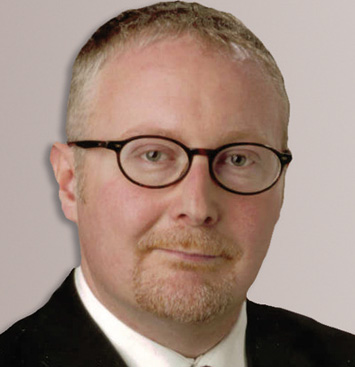As the economic downturn due to coronavirus looks ever deeper, we can also expect the highest levels of fraud and cybercrime ever recorded, it’s claimed. Professor Mark Button, Director of the Centre for Counter Fraud Studies at the University of Portsmouth also raises concerns that counter-fraud preventative measures need to be reviewed urgently because they are unlikely to be enough to deal with the heightened threat that comes from a deep recession.
Professor Mark Button, pictured, said: “Previous recessions show a direct correlation between a fall in economic output and a rise in fraud.”
He has compared the UK’s past three recessions and mapped the growth in fraud offences as GDP falls:
– 1980 recession: 3 per cent fall in GDP, 5.6 per cent increase in fraud offences
– 1990 recession: 1.7 per cent fall in GDP, 9.9 per cent increase in fraud offences
– 2008 recession: 2.1 per cent fall in GDP, 7.3 per cent increase in fraud offences
He said: “Recessions lead to increased financial pressures on more people and a small minority use fraudulent means to address such pressures. Respected economists have predicted the current crisis could lead to a substantial reduction in GDP with lowest estimates of a 7.4 per cent fall and highest estimates of a 35 per cent fall by the OBR. These predictions could mean fraud levels increasing from at least 30.3 per cent and possibly even doubling if the 35 per cent fall was to occur. These are rough estimates, but illustrate that a substantial increase in fraud is likely as a consequence of the economic downturn.
“The deep recession we face, if typical of past economic downturns, looks set to lead to a substantial increase in fraud. Possible economic pressures may also lead people to radically re-evaluate loyalties and to rationalise behaviour which, in normal times, they would not consider appropriate. It is unlikely that any organisation will be immune to these changes. Organisations need to be prepared for this and I hope this guidance, that has been produced with leading practitioners from Crowe, will help them.”
Recent figures from the UK police official reporting line Action Fraud (which says that ‘unfortunately’ its contact centre is running at a ‘reduced service’) show a 400 per cent increase in coronavirus-related cybercrime and fraud since mid-February. Examples include phishing emails, HMRC email and text scams, and bogus websites that offer to track the virus sell protective equipment or diagnose symptoms.
Although it is normal for fraud and cybercrime to increase faster during a recession, Mark Button and the audit and advisory firm Crowe UK say this sudden downturn means the UK now faces an accelerated threat from fraud and cybercrime.
The researchers urge businesses to review any controls in place to prevent fraud and cybercrime, and be ready to ramp them up when necessary. They warn the nature of this type of crime rapidly evolves and often outpaces preset plans, making them redundant.
Jim Gee, Head of Forensic Services for Crowe UK, is Chair of the Centre for Counter Fraud Studies. He said: “Over the coming period we will see a surge in fraud taking it to higher levels than ever before. Existing preventative arrangements are unlikely to be sufficient to meet the heightened threat and need to be reviewed. Our crisis must not become the fraudster’s opportunity.”
Separately, at Cranfield University, Dr Duncan Hodges, Senior Lecturer in Cyberspace Operations, has commented on the increased risk of cyber attacks due to home working during the virus-lockdown. He said: “Traditionally a home network has been considered a less secure part of a corporate network, as well as your corporate laptop on the network there will also be your family’s personal computers, tablets and phones as well as a host of smart home devices. Your network will only be as secure as the most vulnerable of these devices.
“We can also expect more of the corporate data to be moved to cloud hosting solutions to allow for remote working – whilst some of this will be within corporate solutions it would be naïve to think that there won’t be an increase in data being moved to shadow IT infrastructure.”
For more visit the Cranfield website.










